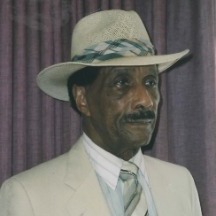The late Congressperson and one of the 13 founding members of the Congressional Black Caucus John Conyers (D-MI) first introduced H.R. 40 in 1989 and every year since until he resigned in 2017. The bill authorizes Congress to establish a commission that “shall examine slavery and discrimination in the colonies and the United States from 1619 to the present and recommend appropriate remedies.”
Since Conyers’ resignation, Congressperson Sheila Jackson Lee (D-TX) has carried the torch. Before the recent House Judiciary Committee hearing on reparations for Black-Americans, she added in a National Newspaper Publishers Association interview, “Has anyone addressed the question of slavery and its comprehensive impact on Black Americans in this country? This is what H.R. 40 will do.”
Following the House hearing, the National Coalition of Blacks for Reparations in America (N’COBRA) and the National Black Cultural Information Trust (NBCI Trust) co-hosted a H.R. 40 Reparations Bill Post-Hearing Forum. N’COBRA was founded in 1987.
Republican witnesses during the House hearing included Utah Congressperson Burgess Owens who said, “It is impractical and a non-starter for the United States government to pay reparations.” The Utah representative claimed, “It is also unfair and heartless to give Black Americans the hope that this is a reality.” The first term congressperson, who identifies as Black, said while campaigning, Donald Trump has “done more to help my community come out of the darkness than any president in my lifetime.”
House Committee Holds Reparations Hearing and N’COBRA Holds Forum

However, since the last time the House held a hearing in 2019, House Speaker Nancy Pelosi has announced support for the bill. This month at a White House press briefing, press secretary Jen Psaki confirmed that President Biden supports the study of reparations, too.
Now that there has been a hearing, the House Judiciary Committee will need to pass the bill. If it is passed in the Committee, the House can begin debate and pass the bill, have it work its way and approved in the Senate, and signed by the President. Court challenges to a signed bill is always possible.
Panelist for the N’COBRA session were Kamm Howard, National Co-chair N’COBRA; Kenniss Henry, Chairperson, N’COBRA Legislative Committee; Nkechi Taifa, President of the Taifa Group and author of Black Power, Black Lawyer; Dr. Ron Daniels, President, Institute of the Black World 21st Century; Jeffery Robinson, Deputy Legal Director, ACLU; Dr. Greg Kimathi Carr, Chair African American Studies, Howard University; Alderperson Robin Simmons, Evanston (Illinois) Reparations Subcommittee; and Dreisen Heath, Assistant Researcher, Racial Justice, Human Rights Watch.
Port Of Harlem is proud to have volunteered our media relation services for the 2000 N’Cobra Convention in Washington.
Now that there has been a hearing, the House Judiciary Committee will need to pass the bill. If it is passed in the Committee, the House can begin debate and pass the bill, have it work its way and approved in the Senate, and signed by the President. Court challenges to a signed bill is always possible.
Panelist for the N’COBRA session were Kamm Howard, National Co-chair N’COBRA; Kenniss Henry, Chairperson, N’COBRA Legislative Committee; Nkechi Taifa, President of the Taifa Group and author of Black Power, Black Lawyer; Dr. Ron Daniels, President, Institute of the Black World 21st Century; Jeffery Robinson, Deputy Legal Director, ACLU; Dr. Greg Kimathi Carr, Chair African American Studies, Howard University; Alderperson Robin Simmons, Evanston (Illinois) Reparations Subcommittee; and Dreisen Heath, Assistant Researcher, Racial Justice, Human Rights Watch.
Port Of Harlem is proud to have volunteered our media relation services for the 2000 N’Cobra Convention in Washington.
Advertisers | Contact Us | Events | Links | Media Kit | Our Company | Payments Pier
Press Room | Print Cover Stories Archives | Electronic Issues and Talk Radio Archives | Writer's Guidelines






